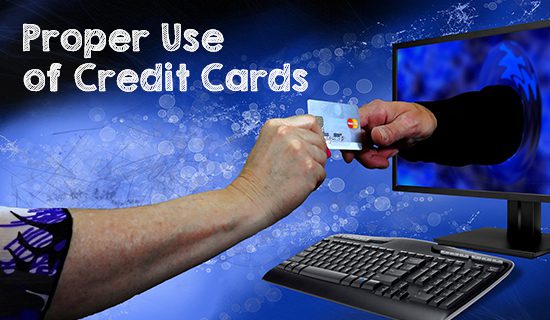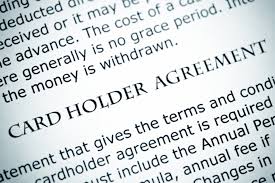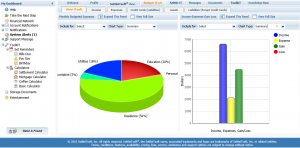Credit Card Usage – Know the Right from the Wrong

As most people know, credit card usage is a double-edged sword. The cards certainly provide a convenient method to postpone payment for goods and services, but since the bill must eventually be paid in order to avoid debt negotiation and settlement, consumers need to utilize credit cards in the most cost effective manner possible.
First, go slow. No matter the amount of purchasing power you have acquired with a line of credit, you need to recognize that every kind of credit is in fact a loan that must be repaid, almost always with interest. The longer it takes you to repay the loan, especially with credit cards, the more interest you are going to end up paying. Therefore, you should only use the credit you really need and can afford to repay.
Second, use your credit line with the lowest interest rate first. If you are not paying off the balance on your credit cards each month, you will want to use the card with the lowest interest rate. Lower interest means lower payments and less money paid to the creditor.
 Third, always review a credit card agreement – especially the fine print! Remember, the fine print is not ridiculously small because the creditor wants to save money on paper. Often the fine print contains terms and conditions that may have a significant impact on your account.
Third, always review a credit card agreement – especially the fine print! Remember, the fine print is not ridiculously small because the creditor wants to save money on paper. Often the fine print contains terms and conditions that may have a significant impact on your account.
For example, some credit card companies bury the fact that they can change any of their term and conditions, including interest rates and fees, with only fifteen days’ notice. You may want to avoid this type of company, but can only do so if you review the terms and conditions carefully before signing the Credit Agreement.
Fourth, if you can afford to pay off your credit cards, do it! If your monthly budget permits you to pay all or most of your credit card balance, make it a practice to do so. Remember, the minimum monthly payments have been designed to keep you paying the most interest for the longest time possible.
Fifth, don’t skip payments. If you skip one or more payments, your credit report will be impacted negatively. Plus, your credit card provider may charge you additional fees and possibly raise your interest rate.
Sixth, set a budget for credit card payoff. If you are paying off a credit card balance, determine a budget for these payments. Keep in mind, the more you can afford to repay, the less interest you will ultimately pay.
 Seventh, monitor payments and compare with income. It is important to keep track of how much are you paying in credit card debt and constantly compare it with the amount of monthly income you generate. This is done by dividing credit card payments by total monthly income. Most financial professionals recommend that credit card payments should be below 15% of your income.
Seventh, monitor payments and compare with income. It is important to keep track of how much are you paying in credit card debt and constantly compare it with the amount of monthly income you generate. This is done by dividing credit card payments by total monthly income. Most financial professionals recommend that credit card payments should be below 15% of your income.
Eighth, if your percentage is more than 15%, be careful! This is an indication that most of your money is going to repaying credit cards. For instance, if your monthly income is $1,500, you shouldn’t be spending more than 15% of this amount, or $225, on your credit card payments.
Ninth, maintain communication with your credit card companies. By keeping in touch, you can take advantage of any discounts in interest rates for which you may qualify. Most importantly, if you believe that you won’t be able to make the next payment because of a job layoff, unexpected medical bills, or for any other reason, you should be able to contact your credit card issuer and make payment arrangements.
By not waiting until it’s too late, you could save yourself from negative information appearing on your credit report. Remember, credit card companies want to create long-term business relationships with you. Therefore, they may be flexible and willing to make special arrangements to help accommodate your current financial situation.
Tenth, don’t “max out” your credit cards. Taking your credit cards to their credit limits will only make your financial situation worse. Avoid the stress from your creditors, who will be pressing you to repay the debt, by not using up your credit card line of credit unless absolutely necessary.
A good rule of thumb: never use your credit power unless you have the income to pay off your loan. Otherwise, your credit rating could be negatively impacted; resulting in a poor credit score. This may create problems when you apply for a mortgage, an installment loan for an automobile, education expenses, or medical bills, or even opening a bank account.
Bottom Line: When it comes to credit cards, understand what you are getting into, utilize the charging privileges responsibly and – to keep a lot more in your pocket – pay these accounts promptly.



 Login
Login






